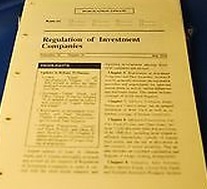The financial-adviser industry is like any other in this respect: there are “experts” and “thought leaders” speaking at conferences with new concepts and ideas surrounding investing. There are investing fads that come and go with each temporary trend in the economy. These fads may start from anywhere: academia, a popular book that investors start asking their advisers about, or a new product category that offers a new feature.
The advice a particular adviser will offer depends upon: the adviser firm’s investment stance, the experience of the adviser, and where he or she gets their financial planning news and ideas.
As an example, let’s pose a question: Should you be invested in bonds? A young adviser may say, “They are offering tiny yields, I’d recommend you stay away.” An asset-allocation adviser may say, “You should definitely have at least 30% of your portfolio in long-term bonds.” A retirement adviser may recommend, “Municipal bonds that are properly insured are very safe and tax-efficient; this is where you should place your bond allocation.” While I might say today, “Yes, interest rates are low – so you’ll get clobbered if interest rates rise. So only buy bonds that you will definitely hold until they mature in the short-term, say 4 years or less.”
The advice from these 4 opinions will have a dramatically different risk/reward impact on your portfolio over time. And remember, this is just one question. There are many questions that need to be answered to complete any financial plan. Some other investing themes currently today include: should you have alternative investments in your portfolio, should you investing be goals-based or cash-flow based, and how often should investment performance be evaluated.
When you have a personal portfolio, you, alone, are the CEO of the portfolio-management team. If you outsource some of this work to others, like financial advisers, you are still fully responsible for what they are doing and need to know how to manage them (and if necessary, replace them). As the CEO, you need some financial literacy and investment literacy so that you can:
- Communicate your goals with any financial adviser that you may employ
- Understand the financial planning fads that may be presented to you
- Keep your portfolio growth on target

